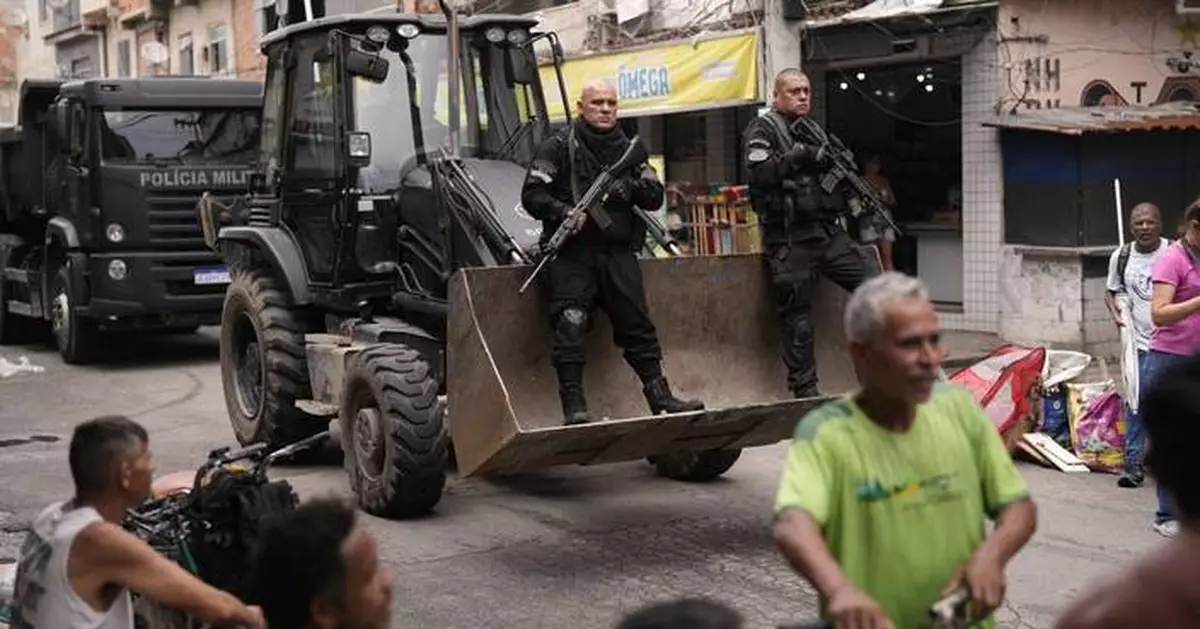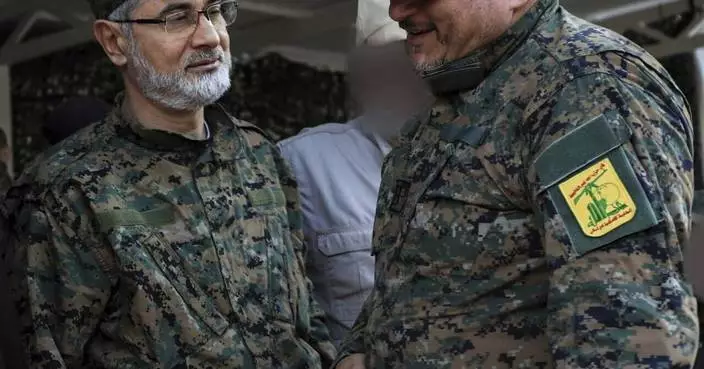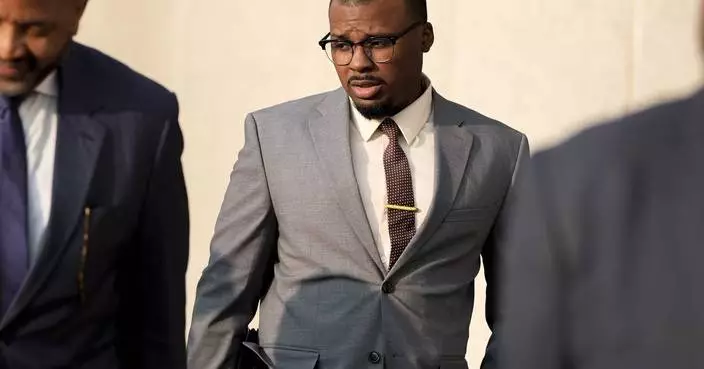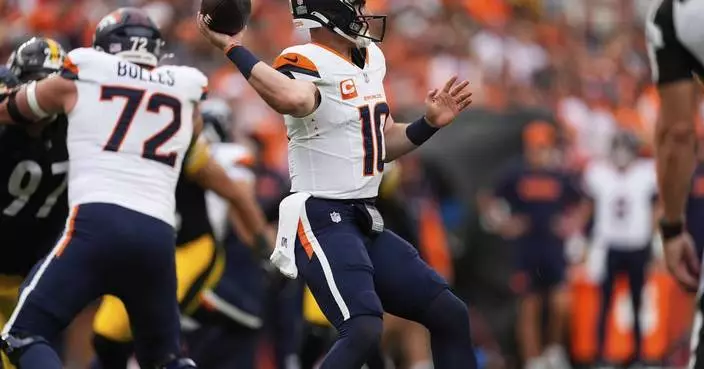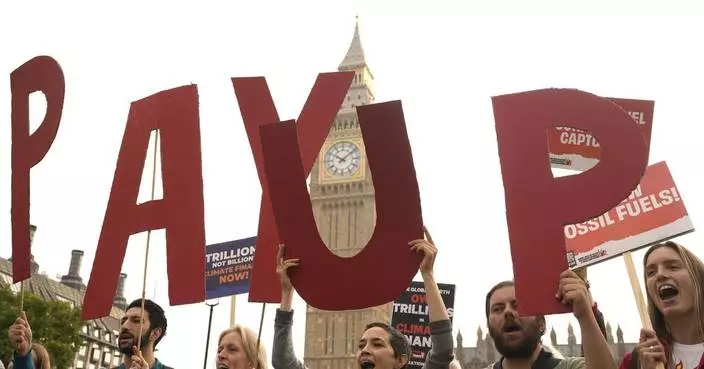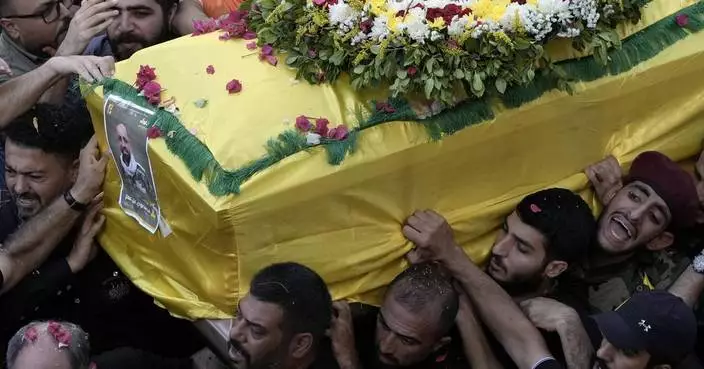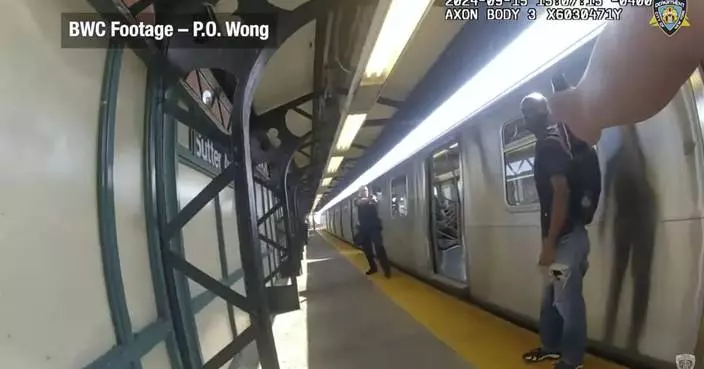SAO PAULO, Brazil (AP) — The Brazilian Supreme Court ruled Thursday that the state must compensate victims of stray bullets during military and law enforcement operations.
The ruling means that the state is now civilly liable for deaths or injuries resulting from either police or armed forces operations, even in cases where the forensics reports are inconclusive.
The country’s top court was ruling in a case stemming from the killing of a man by a stray bullet in 2015 during an army action in Rio de Janeiro’s impoverished Mare neighborhood. The court ordered the federal government to pay 300,000 reais ($60,000) to his family, who will also receive a lifetime pension and have the victim’s funeral expenses covered.
“The risk of stray bullets and violent firearm deaths is recurring in the country. Efforts are being made to reverse this pattern of violence, which spares no one, including children,” said Cristina Neme, a sociologist and coordinator of Instituto Sou da Paz, a nonprofit that monitors public security.
Brazil registered over 47,000 homicides in 2022, nearly 14% caused by the police, she added. That rate is even higher in Rio de Janeiro state, where the police caused almost 30% of the homicides.
Fogo Cruzado, a nonprofit organization that provides real-time reporting of gun violence in Brazil, has registered 1,195 stray bullet casualties in the Rio metropolitan area since July 2016. According to the data, 284 were killed, and 911 were injured.
In a statement on Friday, Fogo Cruzado stated that the state should compensate all victims of stray bullets, not just those hit in military operations.
“Stray bullets occur because the state has failed to protect citizens’ lives and to control the circulation of firearms," the organization said.
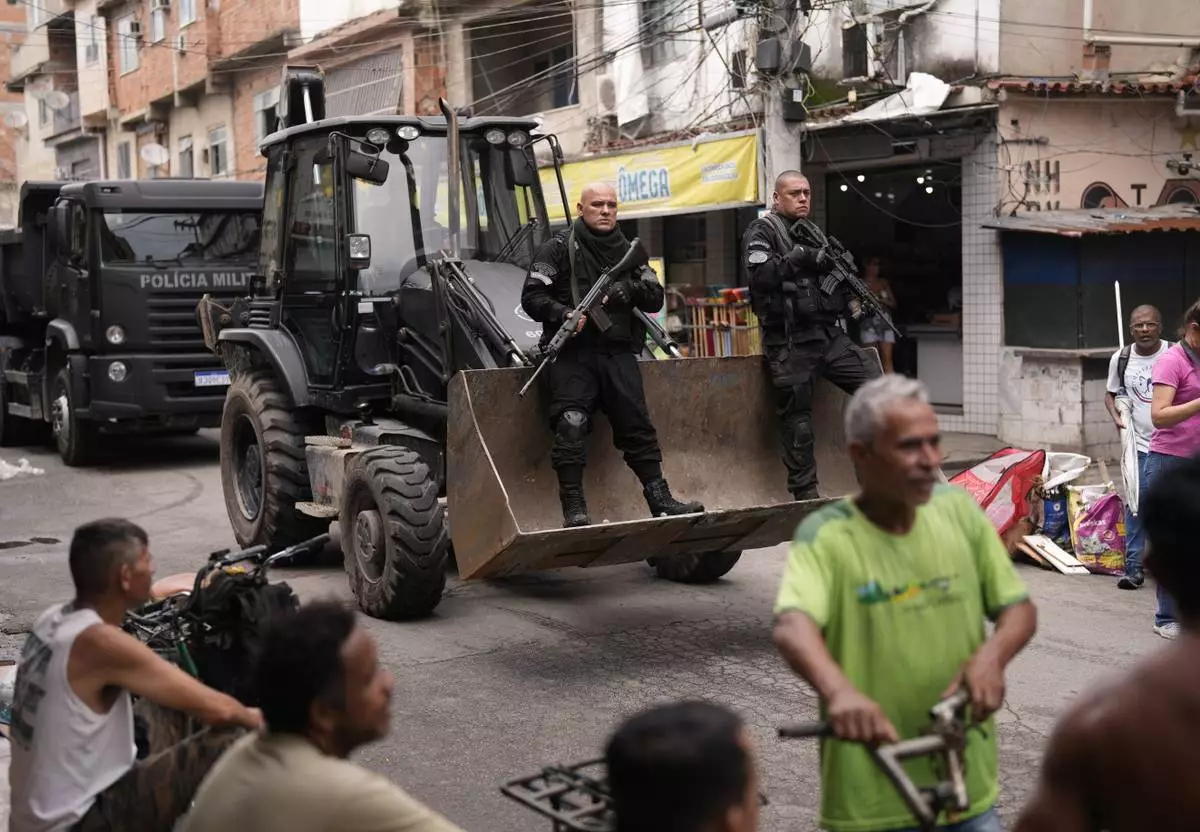
FILE - Police ride past residents in a bulldozer they use to clear street barricades during a security operation against organized crime in the Mare Complex favela of Rio de Janeiro, Brazil, Oct. 9, 2023. The Brazilian Supreme Court ruled on Thursday, April 12, 2024, that the state must compensate victims of stray bullets during military and law enforcement operations. (AP Photo/Silvia Izquierdo, File)
COLUMBIA, S.C. (AP) — South Carolina put inmate Freddie Owens to death Friday as the state restarted executions after an unintended 13-year pause because prison officials couldn’t get the drugs needed for lethal injections.
Owens was convicted of the 1997 killing of a Greenville convenience store clerk during a robbery. While on trial, Owens killed an inmate at a county jail. His confession to that attack was read to two different juries and a judge who all sentenced him to death.
When the curtain to the death chamber opened, Owens, 46, was strapped to a gurney, his arms stretched to his sides. Owens made no final statement, but after the drug was administered, he said “bye” to his lawyer and she said “bye" to him.
He smiled slightly and his facial expression did not change much before he appeared to lose consciousness after about a minute. Then his eyes closed and he took several deep breaths. His breathing got shallower and his face twitched for another four or five minutes before the movements stopped.
A doctor came in and declared him dead a little over 10 minutes later at 6:55 p.m.
Owens' last-ditch appeals were repeatedly denied, including by a federal court Friday morning. Owens also petitioned for a stay of execution from the U.S. Supreme Court. South Carolina's governor and corrections director swiftly filed a reply, stating the high court should reject Owens' petition. The filing said nothing is exceptional about his case.
The high court denied the request shortly after the scheduled start time of the execution.
His last chance to avoid death was for Republican South Carolina Gov. Henry McMaster to commute his sentence to life in prison. McMaster denied Owens' request as well, stating that he had “carefully reviewed and thoughtfully considered” Owens' application for clemency.
McMaster said earlier that he would follow historical tradition and announce his decision minutes before the lethal injection begins when prison officials call him and the state attorney general to make sure there is no reason to delay the execution. The former prosecutor had promised to review Owens’ clemency petition but has said he tends to trust prosecutors and juries.
Owens may be the first of several inmates to die in the state's death chamber at Broad River Correctional Institution. Five other inmates are out of appeals and the South Carolina Supreme Court has cleared the way to hold an execution every five weeks.
South Carolina first tried to add the firing squad to restart executions after its supply of lethal injection drugs expired and no company was willing to publicly sell them more. But the state had to pass a shield law keeping the drug supplier and much of the protocol for executions secret to be able to reopen the death chamber.
To carry out executions, the state switched from a three-drug method to a new protocol of using just the sedative pentobarbital. The new process is similar to how the federal government kills inmates, according to state prison officials.
South Carolina law allows condemned inmates to choose lethal injection, the new firing squad or the electric chair built in 1912. Owens allowed his lawyer to choose how he died, saying he felt if he made the choice he would be a party to his own death and his religious beliefs denounce suicide.
Owens changed his name to Khalil Divine Black Sun Allah while in prison but court and prison records continue to refer to him as Owens.
Owens was convicted of killing Irene Graves in 1999. Prosecutors said he fired a shot into the head of the single mother of three who worked three jobs when she said she couldn't open the store's safe.
But hanging over his case is another killing: After his conviction, but before he was sentenced in Graves’ killing, Owens fatally attacked a fellow jail inmate, Christopher Lee.
Owens gave a detailed confession about how he stabbed Lee, burned his eyes, choked and stomped him, ending by saying he did it “because I was wrongly convicted of murder,” according to the written account of an investigator.
That confession was read to each jury and judge who went on to sentence Owens to death. Owens had two different death sentences overturned on appeal only to end up back on death row.
Owens was charged with murder in Lee's death but was never tried. Prosecutors dropped the charges with the right to restore them in 2019 around the time Owens ran out of regular appeals.
In his final appeal, Owens' lawyers said prosecutors never presented scientific evidence that Owens pulled the trigger when Graves was killed and the chief evidence against him was a co-defendant who pleaded guilty and testified that Owens was the killer.
Owens’ attorneys provided a sworn statement two days before the execution from Steven Golden saying Owens was not in the store, contradicting his trial testimony. Prosecutors said other friends of Owens and his former girlfriend testified that he bragged about killing the clerk.
“South Carolina is on the verge of executing a man for a crime he did not commit. We will continue to advocate for Mr. Owens,” attorney Gerald “Bo” King said in a statement.
Owens' lawyers also said he was just 19 when the killing happened and that he had suffered brain damage from physical and sexual violence while in a juvenile prison.
South Carolinians for Alternatives to the Death Penalty plans a vigil outside the prison about 90 minutes before Owens is scheduled to die.
South Carolina’s last execution was in May 2011. It took a decade of wrangling in the Legislature — first adding the firing squad as a method and later passing a shield law — to get capital punishment restarted.
South Carolina has put 43 inmates to death since the death penalty was restarted in the U.S. in 1976. In the early 2000s, it was carrying out an average of three executions a year. Only nine states have put more inmates to death.
But since the unintentional execution pause, South Carolina’s death row population has dwindled. The state had 63 condemned inmates in early 2011. It now has 31 after Owens' death Friday. About 20 inmates have been taken off death row and received different prison sentences after successful appeals. Others have died of natural causes.
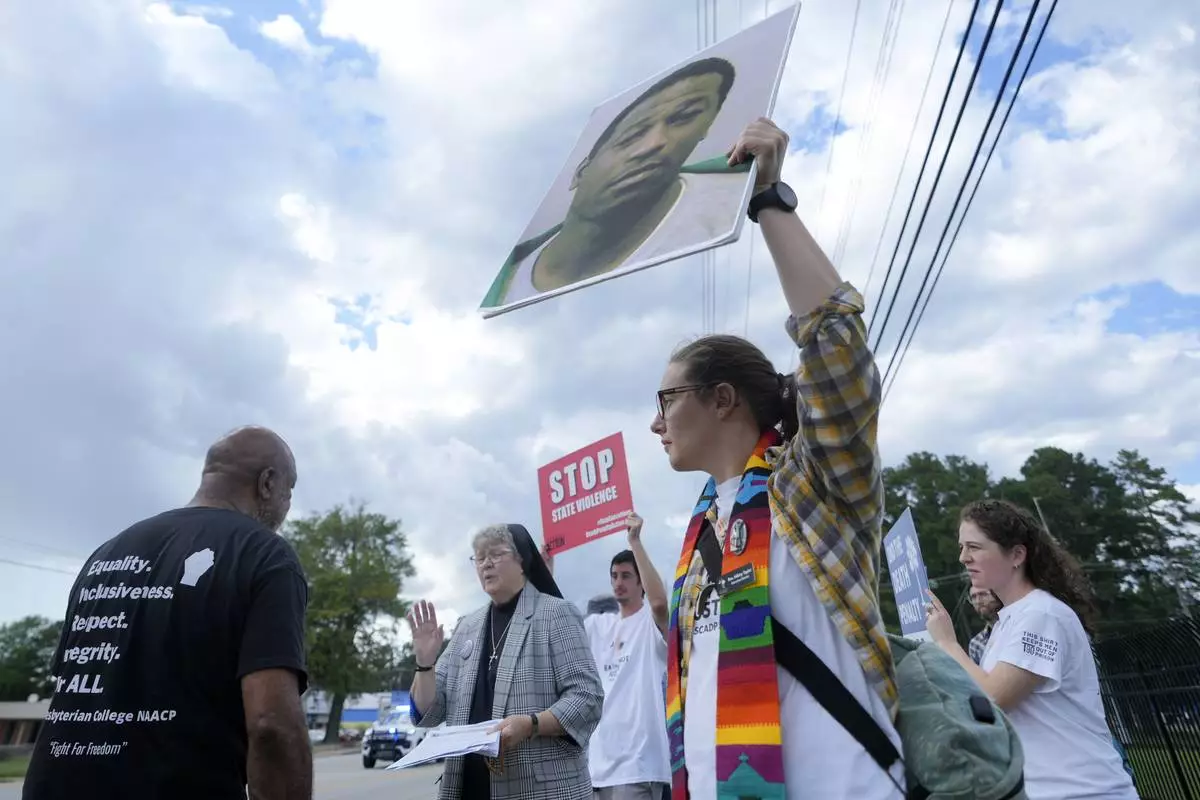
Rev. Hillary Taylor protests the planned execution of Freddie Eugene Owens, 46, on Friday, Sept. 20, 2024, in Columbia, S.C. Owens is set to be the first person to be executed in South Carolina in 13 years. (AP Photo/Chris Carlson)
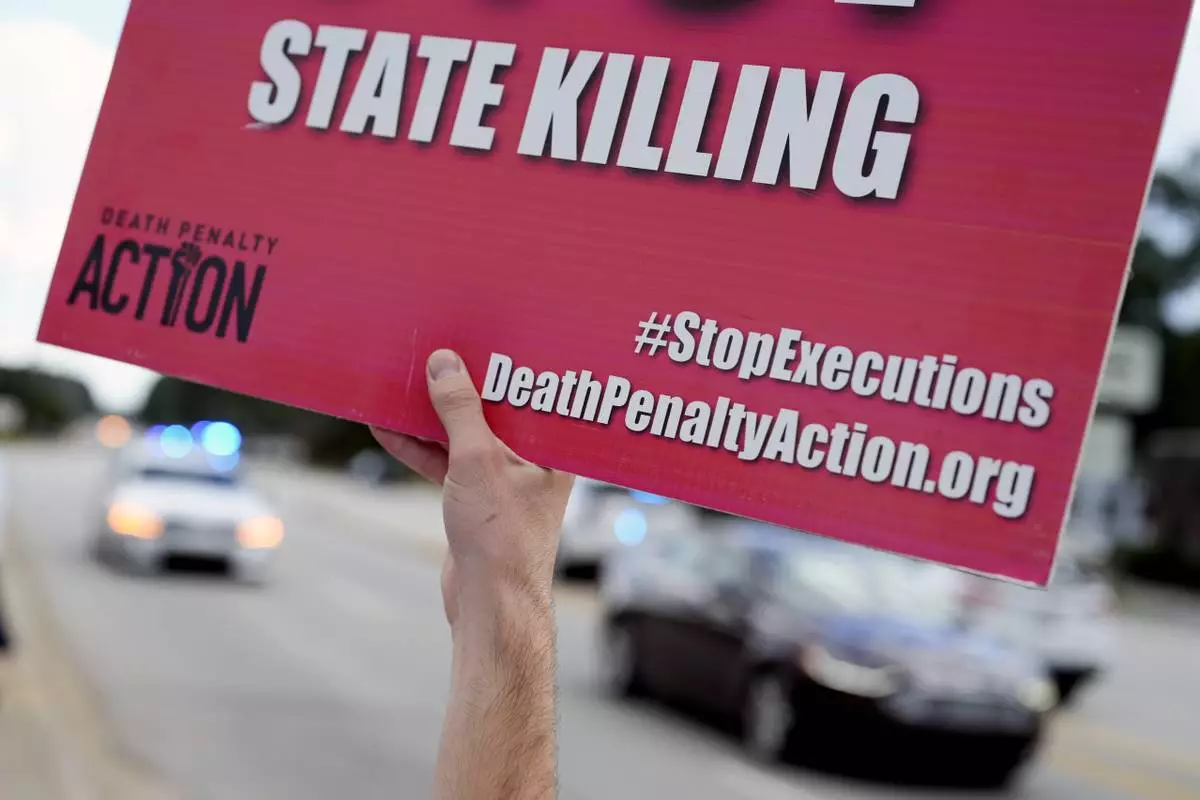
A demonstrators protests the planned execution of Freddie Eugene Owens, 46, on Friday, Sept. 20, 2024, in Columbia, S.C. Owens is set to be the first person to be executed in South Carolina in 13 years. (AP Photo/Chris Carlson)
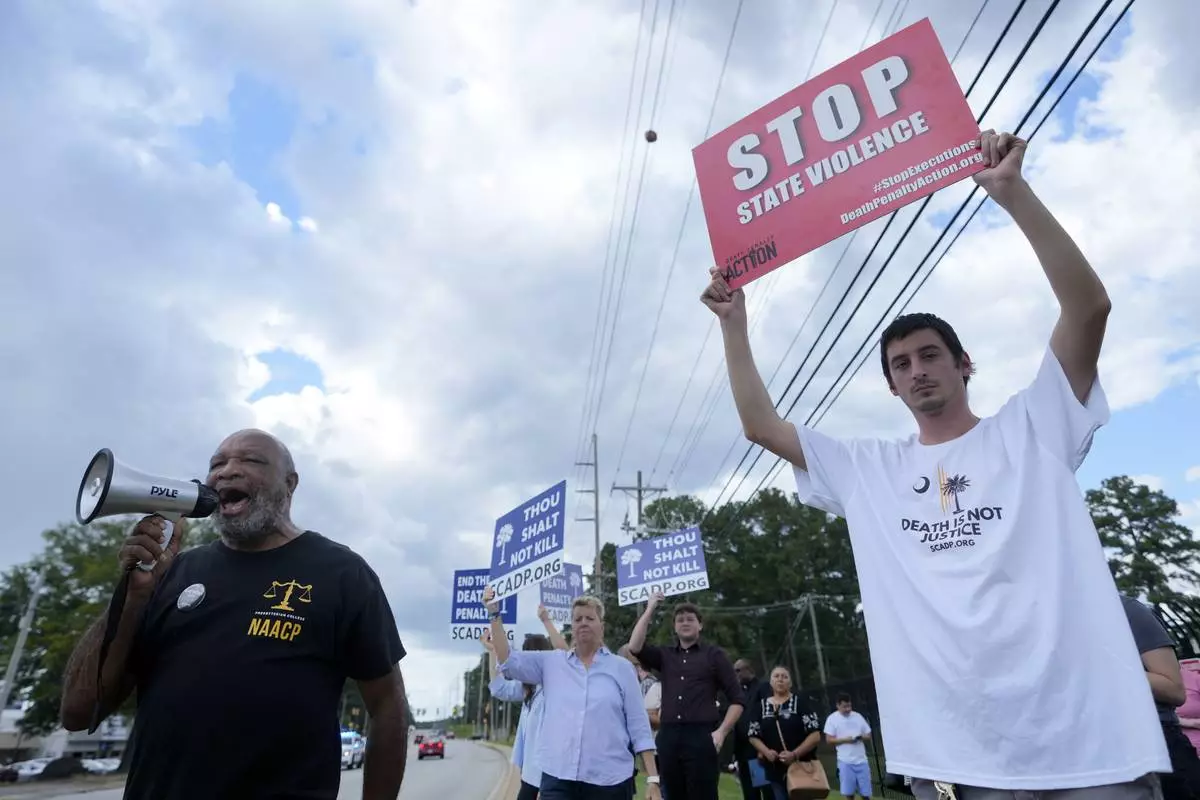
Jesse Motte, right, protests the planned execution of Freddie Eugene Owens, 46, on Friday, Sept. 20, 2024, in Columbia, S.C. Owens is set to be the first person to be executed in South Carolina in 13 years. (AP Photo/Chris Carlson)
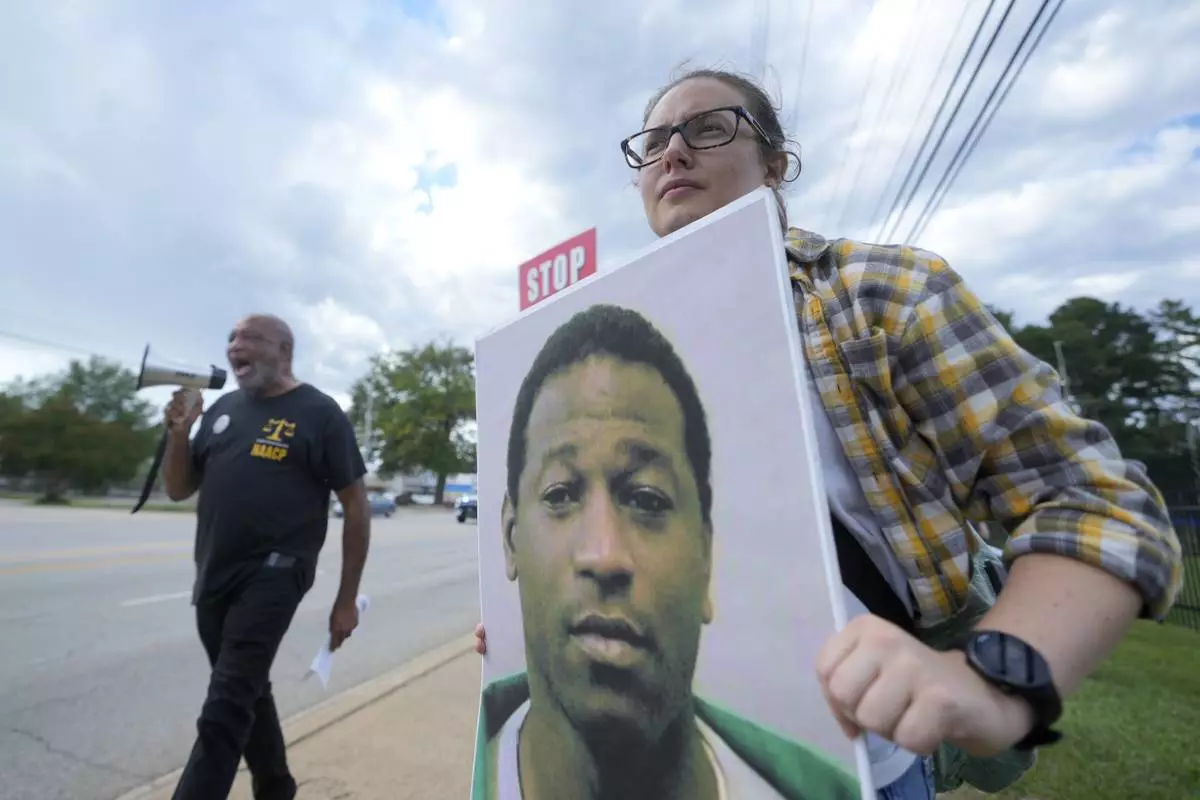
Rev. Hillary Taylor protests the planned execution of Freddie Eugene Owens, 46, on Friday, Sept. 20, 2024, in Columbia, S.C. Owens is set to be the first person to be executed in South Carolina in 13 years. (AP Photo/Chris Carlson)
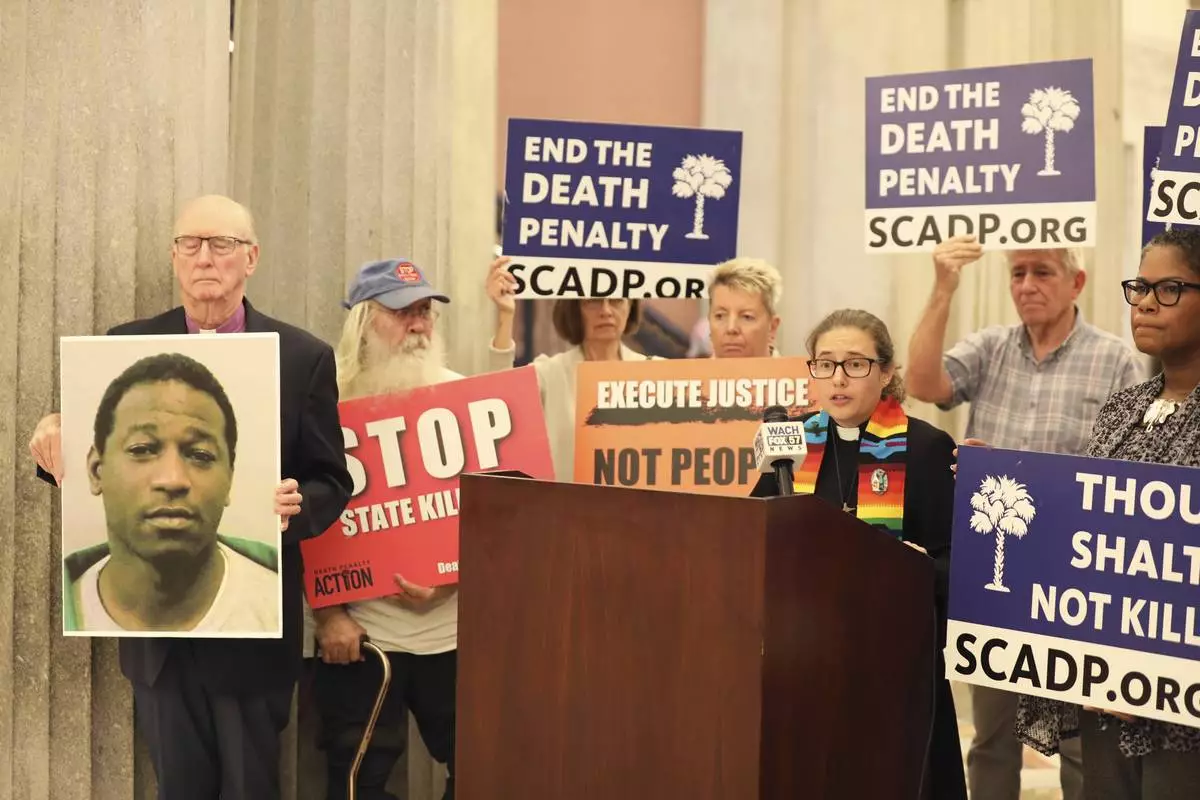
South Carolinians for Alternatives to the Death Penalty Executive Director Rev. Hillary Taylor speaks at a news conference before delivering petitions to stop the execution of Freddie Owens at the South Carolina Statehouse in Columbia, S.C., Thursday, Sept. 19, 2024. (AP Photo/Jeffrey Collins)
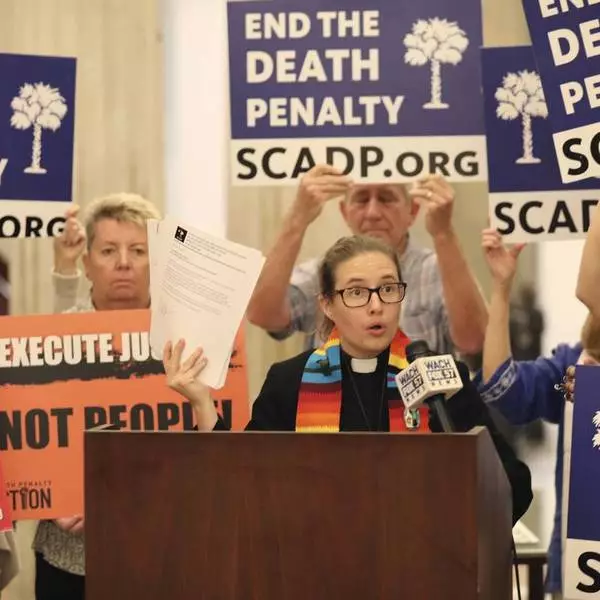
South Carolina prepares for first execution in 13 years
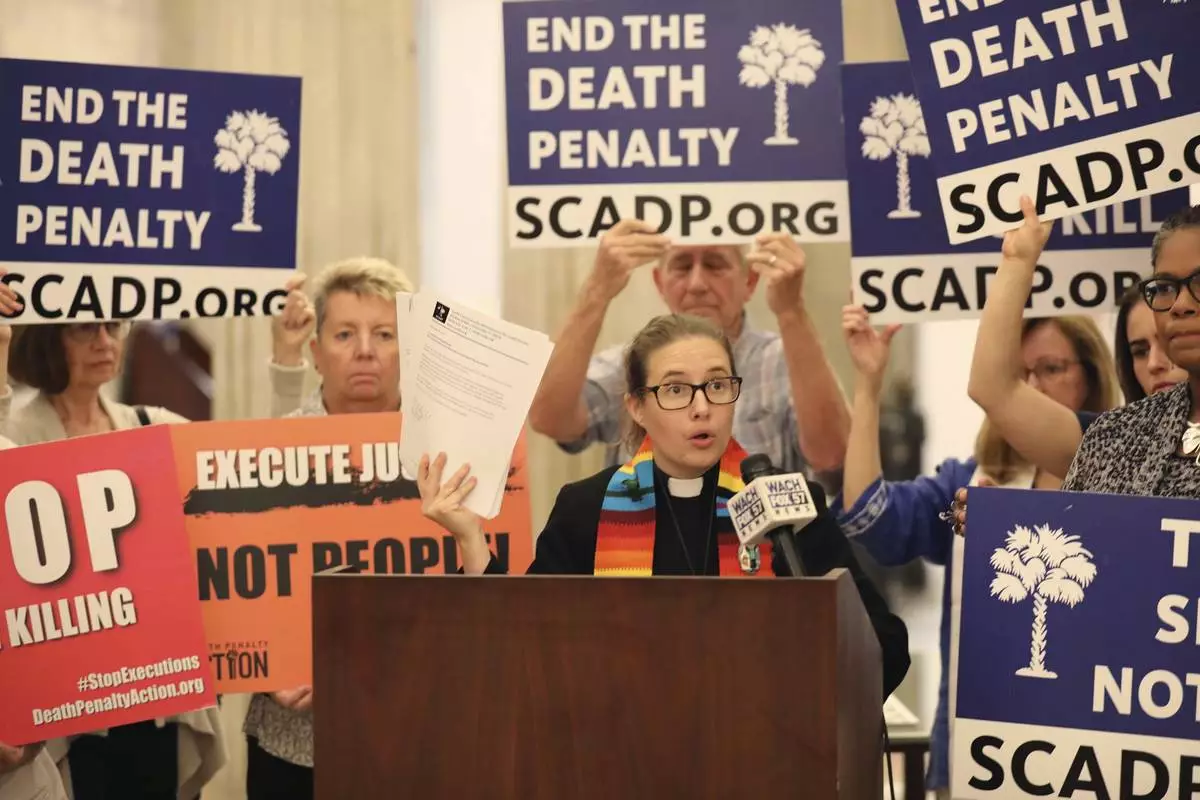
South Carolinians for Alternatives to the Death Penalty Executive Director Rev. Hillary Taylor speaks at a news conference before delivering petitions to stop the execution of Freddie Owens at the South Carolina Statehouse in Columbia, S.C., Thursday, Sept. 19, 2024. (AP Photo/Jeffrey Collins)
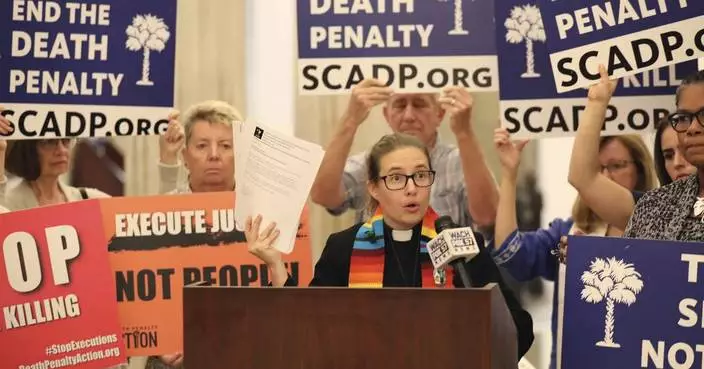
South Carolina prepares for first execution in 13 years



